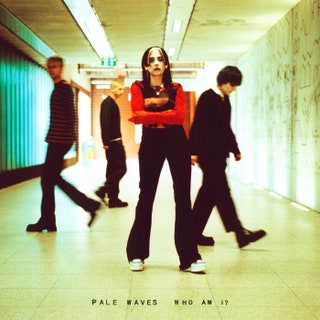Pale Waves explores the trials and tribulations of young adulthood

Pale Waves explores young adulthood in their new album. The album has topped the UK charts.
English indie rock band, Pale Waves, recently released their second studio album, entitled Who Am I? The four member group contains Heather Baron-Gracie as lead vocalist, Ciara Doran on the drums, Hugo Silvani playing lead guitar and keyboard, and Charlie Wood on bass and keyboard. The album reached number 3 on UK Album Charts.
While their first album, My Mind Makes Noises, is a coming of age record, Who Am I? depicts a more mature take of young adulthood. It deals with a wide variety of themes, from battling with mental illness to falling in love to the pain of growing older and self discovery. The album clearly depicts Baron-Gracie’s distinct voice and development as both a person and a songwriter. The band’s guitar-driven sound closely resembles artists such as Avril Lavigne and Kelly Clarkson.
“Change,” the lead single for the album, was released in mid-November of 2020 — the first single that the band has released since 2018. The song itself is all about heartbreak and the overwhelming emotions that come with wishing to get over someone, but struggling to do so. Although it’s a bit repetitive, the guitar and the harmony in the song make for a very catchy tune.
The second single for the album, “She’s My Religion,” is a bit of an anti-love song. Instead of only focusing on the positive sides of a person, it dives into the darker parts of the personality that are often portrayed as unlovable. Baron-Gracie’s partner stars in the music video. Baron-Gracie emphasizes that true love should be loving all parts of someone: the good, the bad and the ugly. The song is the first that Baron-Gracie has written about her sexuality. LGBTQ+ representation, especially in the music industry, is becoming increasingly important and prevalent in today’s world.
“Easy” is a feel good, stereotypical love song. The song itself perfectly captures the exciting, irrational, and euphoric feelings of falling in love. The song was originally intended to be a mellow piano ballad, but Baron-Gracie wanted more energy, so she added fun, uplifting, and energizing instrumentals.
The fourth single, “You Don’t Own Me,” is a powerful song about femininity and being a woman in a male-dominated world. Women are constantly criticized, judged, and put down, especially those who do not fit the predetermined gender roles society places on them. Although women have come a long way in the past decade, there is still inequality, and Baron-Gracie wants to remind her listeners that the fight is far from over.
The title and closing track, “Who Am I, ” wraps the album up in a little bow. It is a slower, mellower, emotional, piano driven piece. This song depicts fighting depression, and questioning who and what you are. The pre-chorus shifts from hopelessness to emotional growth, emphasizing the idea that finding what truly makes a person happy is difficult, but not impossible.
The band is scheduled to perform at the Sonic Wave Festival in Birmingham, UK, in late May. This is subject to change, but the fact that festivals are scheduled for this summer offers a glimmer of hope for the safe return of live music in the near future.
